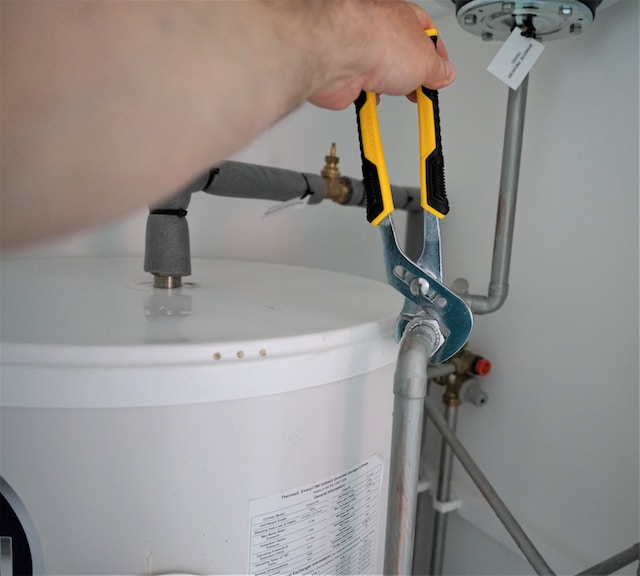Maintaining a functional and efficient plumbing system is vital for the well-being of your home and its occupants. If addressed, plumbing issues can usher to water damage, health hazards, and costly repairs.

To stem such problems, it’s essential to conduct regular plumbing inspections. We will explore how often you should check your plumbing, why routine inspections are crucial, and the steps involved in ensuring the integrity of your plumbing system.
The Frequency of Plumbing Inspections:
Determining how often you should conduct plumbing inspections is essential for the maintenance of your home. The frequency of these inspections can vary depending on factors such as your home’s age, the climate in your region, and the type of plumbing system you have. In general, it is recommended to perform a comprehensive plumbing inspection at least once a year. Nevertheless, semi-annual or seasonal inspections may be more suitable if you reside in an older home or an area with extreme temperature fluctuations.
New constructions should undergo an initial inspection within the first year to identify any issues related to settling. An immediate inspection is warranted if you notice unusual water usage patterns or experience plumbing-related problems. Tailoring the frequency of inspections to your specific circumstances can help you address plumbing issues proactively and prevent potential damage or safety hazards.
The Benefits of Routine Plumbing Inspections:
Regular plumbing inspections offer many benefits that contribute to the overall well-being of your home. Firstly, they facilitate the early detection of plumbing problems, allowing you to address issues before they escalate into larger, costlier repairs. These inspections also promote improved water efficiency by identifying and rectifying leaks and inefficiencies in fixtures and appliances. Additionally, routine plumbing inspections enhance home safety by identifying potential health and safety hazards, such as gas leaks or sewer line blockages.
They contribute to the extended lifespan of fixtures and appliances through regular maintenance, reducing the likelihood of replacements. Moreover, these inspections help stem water damage by promptly identifying and addressing leaks, mitigating the risk of structural damage and mold growth. Routine plumbing inspections are a proactive approach to maintaining a safe, efficient, and functional system.
Steps Involved in Plumbing Inspections:
Conducting a thorough plumbing inspection involves several key steps to ensure the integrity of your plumbing system. Begin with a visual inspection, looking for visible signs of leaks, corrosion, or damage. Examine faucets, sinks, showerheads, and toilets for any visible leaks or drips. Check water pressure throughout your home to identify potential issues. Assess drains for slow drainage, which may indicate clogs. Inspect water-using appliances, such as dishwashers and washing machines, for leaks around connections.
Examine your water heater for any indications of leaks or corrosion. Inspect visible pipes for damage or loose connections. If your home has a sump pump or septic system, ensure they are in operating order. Lastly, assess gas lines for leaks if applicable. If any complex issues, major repairs, gas line concerns, or paramount plumbing projects are identified during the inspection, it is advisable to confer a professional plumber to manage these specific concerns.
When to Call a Professional:
While homeowners can perform many plumbing inspections, certain situations warrant the expertise of a professional plumber. If you suspect complex plumbing issues, such as hidden leaks or sewer line problems, consulting a professional is advisable. Gas line concerns should be addressed exclusively by licensed gas plumbers to ensure safety. Significant plumbing problems, such as burst pipes or extensive water damage, should be assessed and repaired by professional plumbers.
When embarking on new construction or extensive renovations involving plumbing work, professional plumbers should be consulted for design and installation to ensure compliance with building codes and optimal functionality. In cases where specialized knowledge and equipment are required, professional plumbers provide the expertise necessary to maintain the integrity and safety of your plumbing system. Overall, while homeowners can handle routine inspections, professional plumbers are essential for addressing complex, major, or specialized plumbing concerns.
Regular plumbing inspections are a proactive approach to maintaining the functionality, efficiency, and safety of your home’s plumbing system. The frequency of inspections may vary depending on factors like the age of your home and the local climate, but the benefits of routine checks are consistent. Early problem detection, improved water efficiency, enhanced home safety, extended fixture lifespan, and prevention of water damage are among the advantages of regular inspections. Conducting visual inspections, checking fixtures, monitoring water pressure, and examining appliances and pipes are essential steps in the process. In cases of complex issues, gas line concerns, major repairs, or significant plumbing projects, seeking the expertise of plumbing pros for new construction is recommended to ensure the integrity of your plumbing system and the well-being of your home. Overall, routine plumbing inspections are an investment in your home’s long-term health and functionality.